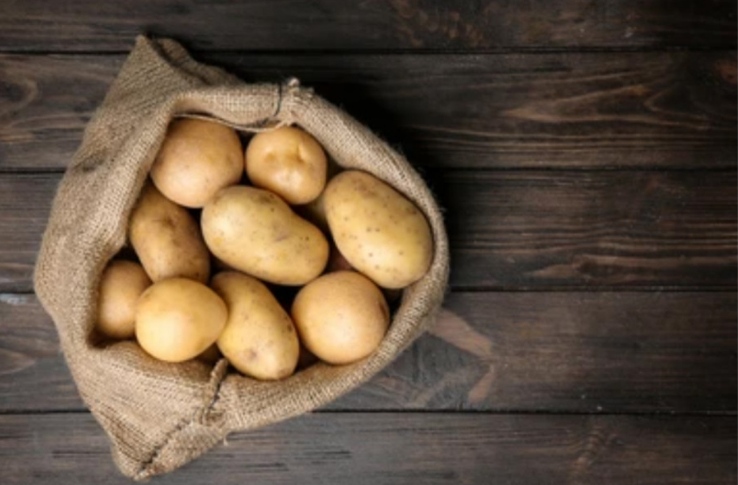Know your food : Potato
The widely-consumed vegetable is packed with nutrients. It is safe too as only a minimal amount of pesticides are used in its cultivation.

Potato, a staple food of hundreds of thousands of people, especially those residing in the mountainous regions, is among the most widely consumed and versatile crops in Nepal. The vegetable is relatively cheap and used in almost all cuisines and curries. This ubiquity could perhaps be why someone might be snubbingly called an ‘aloo’ in Nepal, but the reference does not make potatoes less important.
Why have them
With zero fat, potatoes contain many important nutrients—vitamins B1, B6, Vitamin C, which is an antioxidant, minerals and fibre. Along with starch, it is a good source of potassium, copper, vitamin C, manganese, phosphorus, niacin, dietary fibre and pantothenic acid. Potassium derived from potatoes is an electrolyte that benefits the heart, muscles and nervous system. Potato skin contains fibre, which is important for digestive health.
Compared to other vegetables, potatoes are more energy-dense. It is free of fat, gluten, cholesterol and sodium. The relatively cheap plant-based food is also a good source of carbohydrates. Filled with nutrients, one can get a lot of them by consuming potatoes.
Sourcing of potatoes
Potatoes thrive in diverse climatic conditions. The country cultivates potatoes on around 200,000 hectares of land—from the plains of Tarai to the mountainous region.
Every year, Nepal churns out around 3,410,000 tons of the stuff. It also imports potatoes and potato products worth Rs 8.71 billion.
“These imports include potato chips, frozen potatoes and fresh potatoes,” said Biswas Poudel, a senior technical officer at the National Potato Research Programme.
As its cultivation is possible in diverse landscapes, even climate change does not affect potato farming, experts say.
Types of potatoes
Red and white potatoes are popular and widely available in the country. Lately, dark potatoes or blue potatoes are gaining popularity.
“Red potatoes are highly popular,” said Poudel. “Potatoes that come in colour contain more nutrients. Darker potatoes are packed with antioxidants.”
Potatoes that taste sweet are a good source of vitamin A, an important nutrient for immunity and eye health. Purple potatoes are rich in antioxidants, including anthocyanins that may prevent heart disease and cancer and boost brain health.
Other benefits
As potatoes contain important nutrients, they benefit human health in multiple ways. Iron, phosphorus, calcium, magnesium, and zinc contained in potatoes help the body build and maintain its structure and strength. Consumption of the vegetable that is rich in potassium, calcium and magnesium helps reduce blood pressure naturally. Potatoes also contain a significant amount of fibre, which helps in lowering cholesterol levels in the blood and ultimately lessens the risk of heart disease. Fibre also boosts digestive health.
Compared to other green vegetables, farmers use only a minimal amount of pesticides in potatoes, making them safe to eat.
Chips and french fries
Of late potato chips and french fries are gaining popularity in Nepal. They are also popular dishes in most restaurants and people have even started making french fries at home. Children love potato chips the most.
Intake of nutrients and micronutrients, fibre and antioxidants components depends on how potatoes were cooked or prepared for food.
Consumption of a lot of chips and french fries can lead to added calories and unhealthy weight gain.
“Fibre and antioxidant and other micronutrients of the potatoes may be lost while frying,” said Poudel. “As potatoes are a carbohydrate-rich vegetable, it is not necessary to consume them with rice, which many people do in Nepal.”
Experts say diabetic people should limit their potato intake as they cause spikes in blood sugar.



